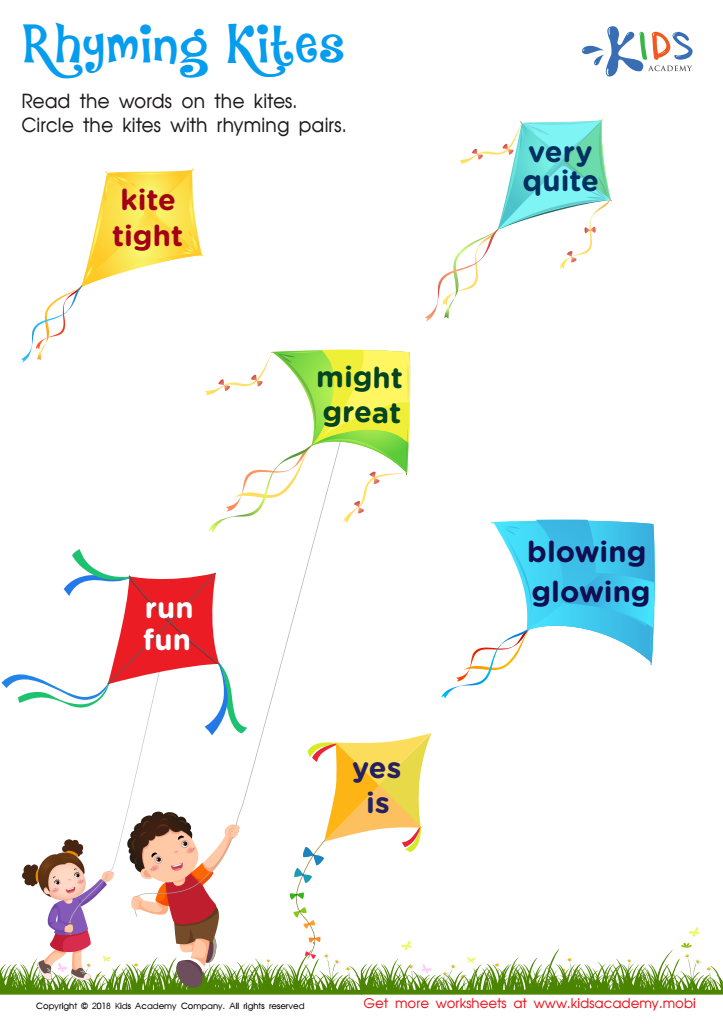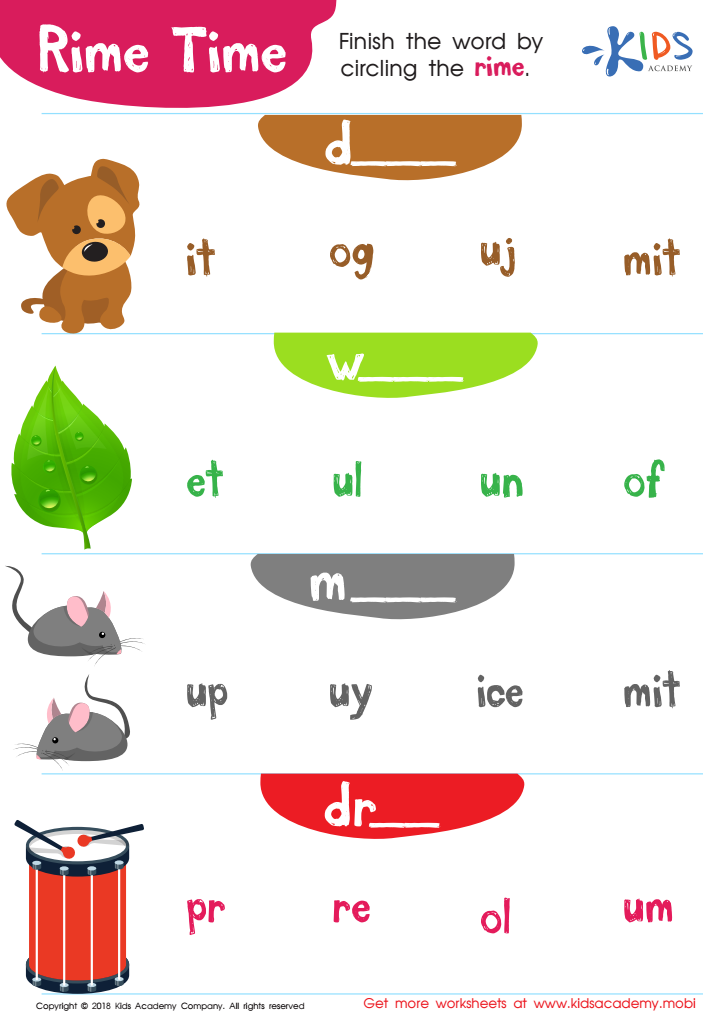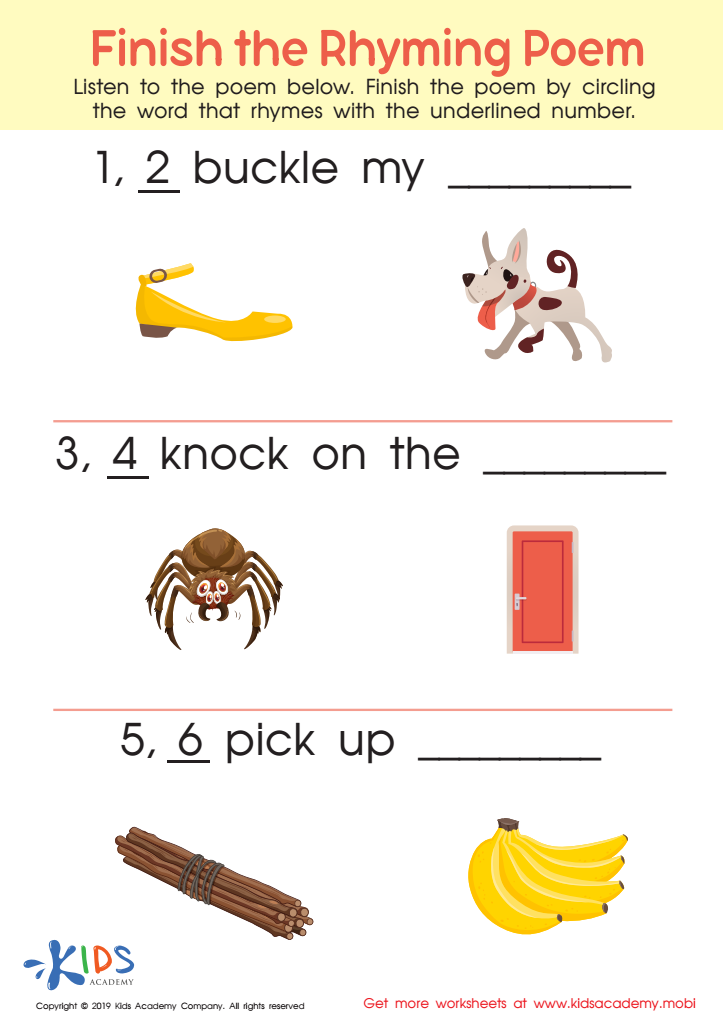Rhyming skills Normal Worksheets for Ages 3-7
4 filtered results
-
From - To
Enhance your child's phonemic awareness and love for language with our "Rhyming Skills Worksheets for Ages 3-7." These captivating, age-appropriate worksheets are designed to develop rhyming abilities, an essential pre-reading skill. Each activity offers diverse, fun challenges such as matching rhyming words, completing verses, and recognizing sounds. Engaging illustrations and creative tasks will guarantee enthusiastic participation, fostering early reading success. Ideal for preschool and early elementary students, these worksheets are perfect for classrooms or at-home practice. Empower your young learner with strong rhyming skills to pave the way for a successful reading journey. Download and start rhyming today!


Rhymes in Poems Worksheet


Rhyming Kites Worksheet


Rime Time Worksheet


Finish Rhyming Poem Worksheet
Rhyming is a fundamental literacy skill that serves as a building block for early reading and language development in children ages 3-7. When parents and teachers emphasize rhyming skills, they are helping children to recognize patterns in sounds, which is crucial for phonemic awareness. Phonemic awareness is the ability to hear, identify, and manipulate individual sounds (phonemes) in spoken words—a critical component of learning to read and spell.
Rhyming also enriches vocabulary and comprehension abilities. As children engage with rhyming texts and activities, they encounter new words and concepts, enhancing their understanding through context and repetition. Moreover, rhyming activities promote memory and recall, making it easier for kids to remember words and their meanings.
Additionally, the rhythmic and musical nature of rhymes makes learning fun and engaging, capturing the child's interest and attention. This positive association with reading activities fosters a lifelong love for literature and learning. When children enjoy what they are learning, they are more likely to pursue it with enthusiasm, encouraging a natural and more effective educational experience.
Lastly, rhyming develops listening skills and auditory discrimination, which are essential not only for academic success but also for everyday communication. These skills help children follow instructions, understand conversations, and interact socially.
Investing time in rhyming skills equips children with a robust foundation for future academic success and effective communication.
 Assign to My Students
Assign to My Students
















